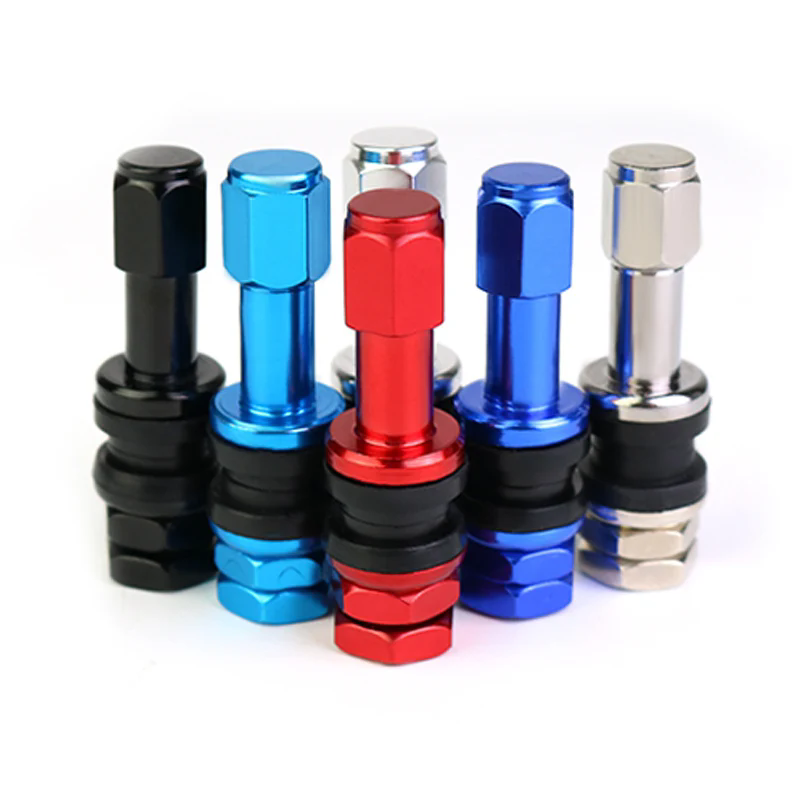Why Is the Car Tire Valve a Small Yet Crucial Component for Your Vehicle?
2024-12-03
When it comes to vehicle maintenance, the car tire valve often goes unnoticed, overshadowed by larger components like engines or brakes. Yet, this tiny part plays an indispensable role in ensuring the safety, performance, and efficiency of your car. But what exactly makes the car tire valve so essential, and why should you pay attention to its condition?
What Is a Car Tire Valve?
A car tire valve is a small device attached to the rim of a tire, allowing air to enter and stay sealed within the tire. It’s equipped with a core and cap, and its primary function is to maintain the correct air pressure, which directly impacts the performance and longevity of your tires.
Types of Car Tire Valves
1. Rubber Snap-In Valves
- Commonly used in passenger vehicles.
- Affordable and easy to install.
- Best for lower-speed vehicles.
2. Metal Clamp-In Valves
- Designed for high-performance and heavy-duty vehicles.
- Durable and resistant to high pressures and temperatures.
3. TPMS Valves
- Integrated with Tire Pressure Monitoring Systems.
- Provide real-time pressure data for modern vehicles.
- Often found in newer cars for enhanced safety.
Why Is the Car Tire Valve Important?
1. Maintains Proper Tire Pressure
The valve ensures that the tire retains the correct amount of air, optimizing performance and fuel efficiency.
2. Enhances Safety
Properly sealed valves prevent air leaks, reducing the risk of tire blowouts, which can lead to accidents.
3. Extends Tire Life
A well-functioning valve helps maintain even air pressure, minimizing uneven wear and tear on tires.
4. Supports Fuel Efficiency
Under-inflated tires can increase rolling resistance, causing your vehicle to consume more fuel. A reliable valve prevents this by keeping pressure consistent.
Signs of a Faulty Tire Valve
- Air Leaks: A noticeable drop in tire pressure may indicate a damaged or worn-out valve.
- Cracked Rubber: Rubber valves can deteriorate over time due to exposure to sunlight and weather.
- Loose Cap: A missing or loose cap can allow dirt and moisture to enter, affecting valve functionality.
How to Maintain Your Car Tire Valves
1. Regular Inspections
Check your tire valves during routine tire pressure checks to ensure they’re in good condition.
2. Replace Worn Valves
It’s recommended to replace tire valves whenever you get new tires to avoid potential air leaks.
3. Keep the Valve Cap Secure
Always ensure the valve cap is tightly secured to protect the core from dust, debris, and moisture.
4. Use High-Quality Valves
Invest in durable valves, especially for heavy-duty or high-performance vehicles, to ensure reliability.
Innovations in Tire Valve Technology
1. TPMS Integration
Modern valves with built-in sensors monitor air pressure and temperature, alerting drivers to issues before they become serious.
2. Self-Sealing Valves
Some advanced valves can automatically seal minor punctures, reducing the need for immediate repairs.
3. Eco-Friendly Materials
Manufacturers are exploring sustainable materials for valve production, aligning with eco-conscious automotive trends.
Conclusion
The car tire valve may be small, but its impact on your vehicle’s safety, efficiency, and performance is immense. Regular maintenance and timely replacement can save you from costly repairs and ensure a smoother driving experience.



